IP phones are the preferred phone choice for businesses, organizations, and offices of any size. If you haven’t made the switch from your landline phones to IP phones, and are wondering if this is the route you should take, click on the following sections to learn more.
- What Are IP Phones?
- Advantages of IP Phones
- Types of IP Phones
- Components Needed to Set Up an IP Phone System
If you are looking for assistance in updating your current business communications system, contact us. We offer expert advice and can help tailor a solution that will suit your needs and budget perfectly.
IP Phones
1. What Are IP Phones?
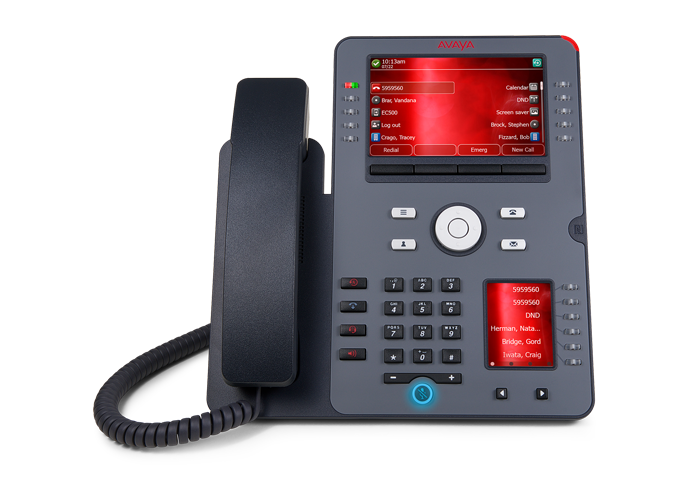
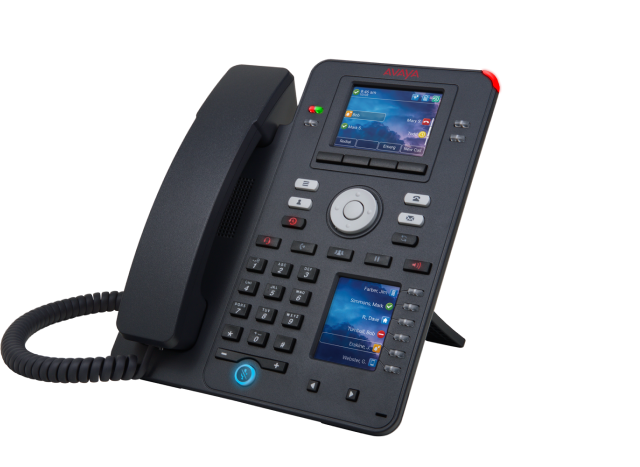
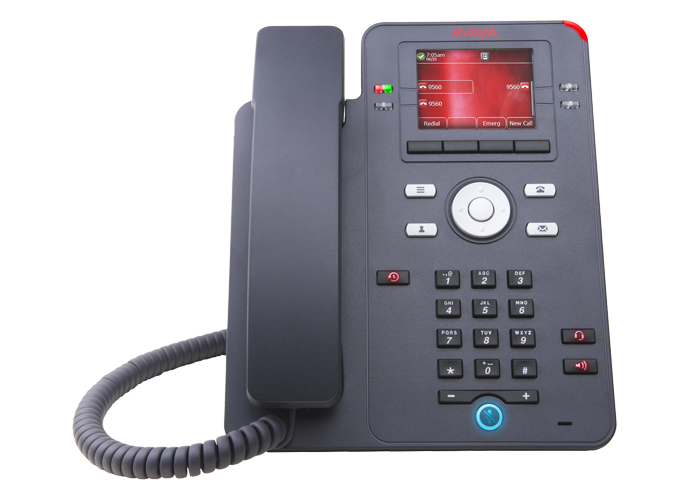
IP phones are communication devices that convert analog signals to digital and vice versa.
An IP phone is also called a VoIP phone (Voice over Internet Protocol phone). It is a communication device that enables voice communication over the internet using digital data packets instead of traditional analog signals used in traditional telephony (landlines).
Your IP phone will convert your voice, which is an analog signal into these digital data packets that can be transmitted over a network. When the packet arrives at the receiving end, it is converted back into an analog signal that the person on the line can understand.
IP phones use the same network infrastructure that supports the internet and local area networks (LANs) to transmit voice data in the form of digital packets. You connect your IP phone directly to your internet or LAN.
IP phones come in various forms, including physical hardware devices that resemble traditional phones, as well as software applications that can be installed on computers, smartphones, and tablets. These devices connect to VoIP service providers or in-house IP PBX (Private Branch Exchange) systems to facilitate communication.
2. Advantages of IP Phones

IP phones can help save you money on your monthly phone bill.
IP phones offer many great advantages over traditional landline phones. Here are some of the main benefits:
High-Quality Digital Communication:
IP phones convert your voice into digital data packets and transmit them over the internet or an internal network. This digital communication allows for higher clarity and potentially better call quality compared to traditional analog phones.
Cost Efficiency:
IP phones can often lead to cost savings, especially for long-distance and international calls. Since the voice data is transmitted over the internet, there may be lower or no long-distance charges associated with these calls.
Advanced Features:
IP phones can offer you a wide range of advanced features beyond basic voice calling, such as:
- video conferencing
- call forwarding to a mobile device
- call forwarding to email
- voicemail
- automated assistance
- caller ID
You can typically integrate these features more easily into digital communication systems than into a landline system.
Scalability:
IP phone systems can be easily scaled to accommodate your growing communication needs. Adding new lines or extensions is usually more straightforward in a digital setup compared to traditional phone systems.
Traditional systems are limited by the number of users that a phone line can handle, so adding new devices often means installing new phone lines and equipment. Adding more devices to a digital system usually involves simply connecting more devices to your network.
Integration with Software:
IP phones can be integrated with various software applications including:
This type of integration can greatly enhance your overall communication and workflow efficiency.
Flexibility for Remote Workers:

Using an IP phone is a great solution for your remote workers.
IP phones can often be used in different locations as long as there’s an internet connection. This is particularly useful for remote workers or businesses with multiple office locations.
Unified Communications:
Unified communications are quickly becoming a necessity for businesses. IP phone systems can be part of unified communications solutions, which integrate various communication channels into a single platform like Microsoft Teams. These channels include:
- voice
- video
- messaging
- sharing files
Unified communications can greatly enhance your workers’ productivity and communication efficiency.
Quality of Service (QoS):
In order to maintain call quality, many IP phone systems use Quality of Service mechanisms to prioritize voice data packets over other types of internet traffic, ensuring a smooth and clear conversation. This is a great feature as it will make sure that the quality of your phone calls will not deteriorate as a result of too much activity on your network.
3. Types of IP Phones
IP phones can be either physical or software-based devices used for making and receiving calls over the internet. IP phones can be hardware devices resembling traditional phones, or they can be software applications installed on computers, smartphones, or tablets.
There are many different types of physical IP phones that you can purchase with different features. You can choose the features you need for your various workers. Here are a few great options to choose from.
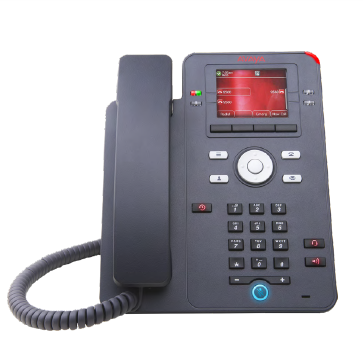
Avaya IX IP Phone J139: Features
- Modern IP Phone with a bright, colour display you can personalize
- Secure, basic voice communications for large enterprises and small and medium-sized companies
- The most commonly used features include Hold, Transfer, Conference, Forward, Call Park / UnPark.
- Use with Avaya Aura®, Avaya IP Office™ and approved third-party call control platforms
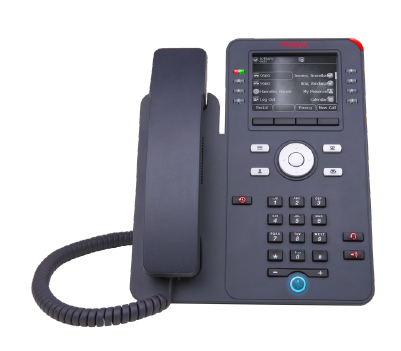
Avaya IX IP Phone J169: Features
- Delivers sophisticated voice communications from headquarters, remote locations, or home offices
- Designed for knowledge workers that need the full range of features
- Integrated functionality with the Avaya Aura® and IP Office™ platforms
- Optimizes communications through a flexible architecture that leverages existing investments and accommodates changing business needs
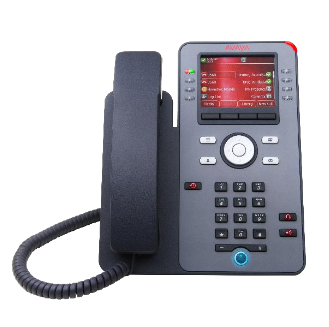
Avaya IX IP Phone J179: Features
- Delivers sophisticated voice communications from headquarters, remote locations, or home offices.
- Targeted for knowledge workers that need the full range of features and advanced capabilities (Bluetooth, Wi—Fi®)
- Integrated functionality with the Avaya Aura® and IP Office™ platforms
- Optimizes communications through a flexible architecture that leverages existing investments and accommodates changing business needs.
4. Components Needed to Set Up an IP Phone System
In addition to your IP phones, you will also need a few key components to set up an IP phone system. Here’s a basic overview of what you’ll need:
Internet Connection:
A reliable and sufficient internet connection is crucial for an IP phone system. Voice data is transmitted as digital packets over the internet, so a stable and high-speed connection is important to ensure good call quality and reliability.
VoIP Service Provider or IP PBX:
You’ll also need a way to manage and route your IP phone calls. This can be done through a VoIP service provider or an in-house IP PBX (Private Branch Exchange) system. A VoIP service provider offers cloud-based services that handle call routing and management, while an IP PBX can be set up within your organization’s network to control call routing internally.
Network Infrastructure:
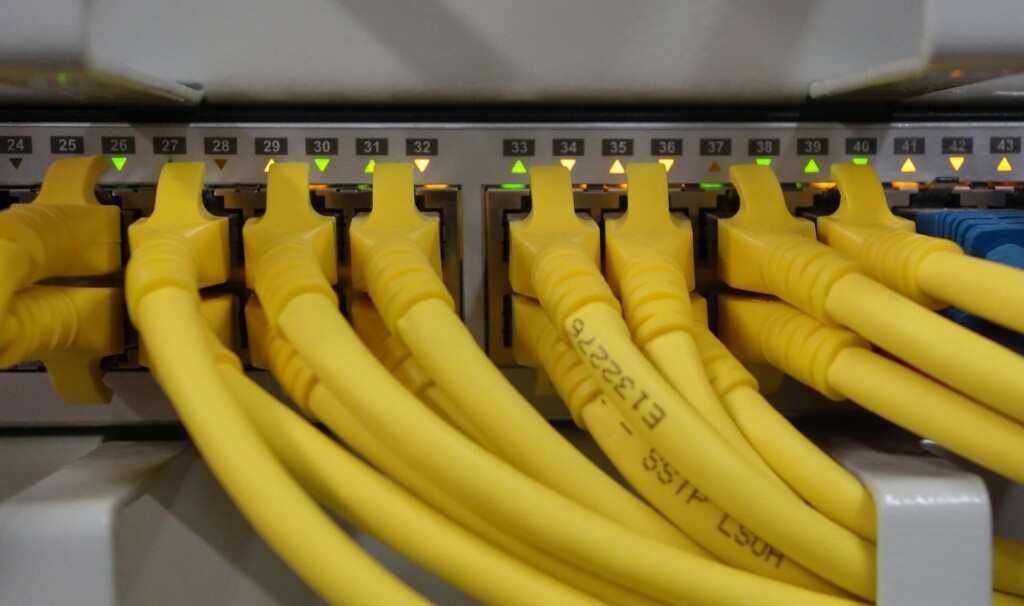
You need Ethernet cables and a properly configured network to use your IP phones.
Your internal network needs to be properly configured to handle voice traffic. Quality of Service (QoS) settings should be configured to prioritize voice traffic over other types of data traffic to maintain call quality.
Router/Firewall Configuration:
Your router or firewall may need to be configured to allow VoIP traffic. Some IP phones require specific ports to be open for communication.
Ethernet Cables or Stable Wi-Fi:
If you’re using physical IP phone devices, you’ll need Ethernet cables to connect them to your network. Alternatively, if you’re using software-based IP phones on computers or mobile devices, a stable Wi-Fi connection is necessary.
Power Over Ethernet (PoE) Switches (Optional):
If your IP phones support Power over Ethernet, you can use PoE switches to power the phones through the Ethernet cables, eliminating the need for separate power adapters.
Unified Communications Software (Optional):
If you want to integrate various communication channels like voice, video, messaging, and collaboration tools, you might consider using unified communications software that can bring these elements together in a single platform.
Security Measures:
As with any internet-based system, security is important. You will need to implement proper security measures to protect your IP phone system from unauthorized access and potential security breaches.
Configuration and Setup:
Proper configuration of IP phones, VoIP service provider settings, network settings, and call routing rules are essential for the smooth operation of your IP phone system. You may need to get some technical expertise or assistance from IT professionals to help you with this.
Training and Support:
As with any new technology, you will probably need to provide training to your users on how to operate the IP phone system effectively. Additionally, you should ensure there’s a support mechanism in place to address any technical issues or questions that may arise.
Remember that the specific requirements and components might vary based on a number of factors including:
- the size of your organization
- the complexity of your communication needs
- the features you want to implement within your IP phone system
It’s often recommended to work with IT professionals or consultants who have experience in setting up and managing IP phone systems to ensure a successful deployment.
For All Your Business Communications Needs, Contact Network Telecom

At Network Telecom, we have extensive experience in all areas of telecommunications including phone systems, unified communications, cabling, and networking. We can easily install and set up any type of network that you require. Contact us today to learn more.
Whatever your business telecommunications needs are, Network Telecom is here for you. We have been selling, installing, and servicing every type of phone system for over 40 years. We can even help with training your employees on the features of your new phone system so that you can use it as efficiently as possible.
If your phone system is not working as it should, our trained technicians are available to help 24 hours a day, 7 days a week, 365 days a year. We carry a huge selection of parts in order to quickly solve any component issues you are experiencing.


In addition to our accredited and certified technical expertise, we offer:
- Consultative Sales
- Cloud Services
- Ongoing Support
- Voice Mail Systems
- System Design + Consulting
- System Admin + User Training
- PA Systems
- VoIP Specialist
- Network Cabling
“Network Telecom is an excellent company when it comes to Data and Phone communications setup. The company I work for consulted with Network Telecom to provide us with a new phone system. They did an excellent job showing us the available options and helped us to select the correct phone system for our business. They are very friendly, knowledgeable and respond quickly to any problems. They would be an asset to any company looking to partner with a Telecommunications company.”
“Network Telecom was wonderful to work with. Helpful and knowledgeable, their team transitioned our office to the new phone system with ease. They were also available to answer concerns and provide additional support post transition. Would definitely recommend their services. Thank you to the team at Network Telecom!”
“We just had an installation done today and it was a great experience. I am not at all tech savvy but everything was explained in a helpful and patient manner. The system seems great and we are really looking forward to running a more efficient office. Highly recommended!”

